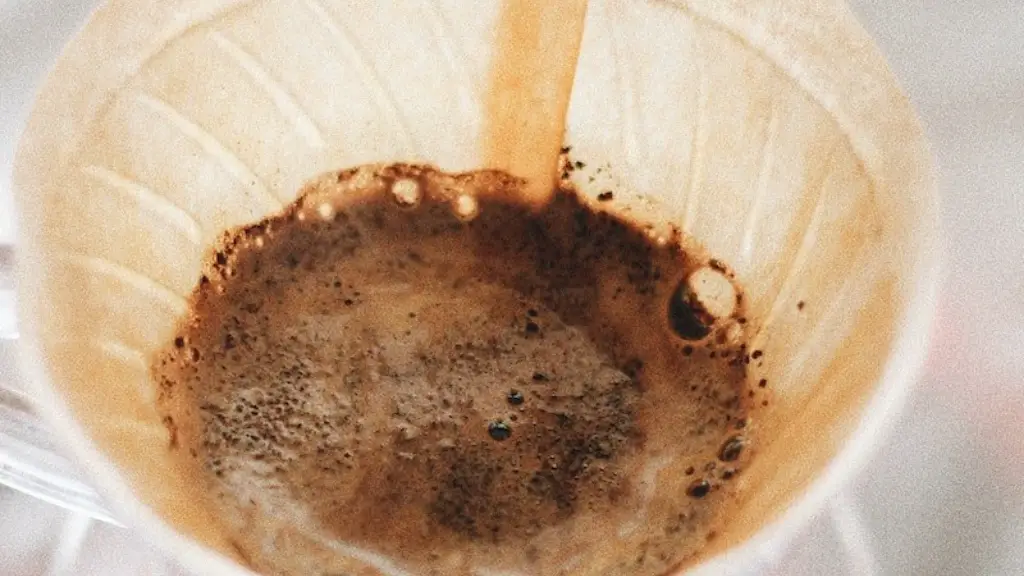Why Does Drinking Coffee Make Me Nauseous
Although caffeine is widely known for its energizing effects, drinking too much can sometimes have a different and opposite impact on the body. Coffee drinkers may experience a wave of queasiness, dizziness, and/or fatigue after imbibing their favorite bean-based beverage, leaving them confused as to why they suddenly feel nauseous.
Caffeine is a stimulant, which means it can have a profound effect on the body when it is ingested. The amount of caffeine in a cup of coffee varies, with one small cup containing approximately 95 milligrams of this energizing compound. Each person’s body is different, and the caffeine content of coffee may affect a person’s individual tolerances differently. This can sometimes make it hard to know how much caffeine a person should ingest before feeling queasy.
Every individual has their own caffeine threshold. Factors such as health, age, weight, and hormones can all affect how quickly or slowly caffeine is processed by the body. Once the individual’s caffeine threshold is reached, feeling sick or nauseous may result. People who are prone to caffeine sensitivity may become nauseous after just one cup of coffee.
It is not only the caffeine content that can cause someone to feel queasy. Acidity is another factor at play. Unfiltered coffees, such as espresso and French press, have a higher acid content which could lead to an upset stomach when consumed in high doses. Adding cream to coffee also contributes to this problem, as the high fat content can be difficult for some people to digest.
Dehydration can also be a contributing factor to coffee-related nausea. When a person consumes coffee and caffeine, the body tends to lose more water than it normally would. Replacing this water can help offset the risk of feeling sick or dizzy afterward.
No matter what the cause of coffee-induced nausea is, the best way to avoid it is to simply reduce your caffeine intake. Most doctors recommend that adults consume no more than 400 milligrams of caffeine per day. This is the equivalent of three to four 8-ounce cups of coffee. Drink decaffeinated coffee or switch to teas and other beverages to reduce your overall caffeine intake.
Tips for Preventing Nausea After Drinking Coffee
For those who enjoy the taste of coffee but want to avoid the nausea that sometimes comes with it, there are a few tips and tricks to try. Firstly, try to drink slowly and savor each sip to give your body time to process the caffeine. Secondly, drink plenty of water to help reduce the effects of dehydration. Use low acid coffees and add milk, creamer, or non-dairy substitutes instead of cream. If a person is particularly sensitive to caffeine, try switching to decaffeinated coffee or other alternatives such as tea, for a tasty but nausea-free beverage.
Although coffee does contain some beneficial compounds, such as antioxidants and essential vitamins, the risks of consumption may outweigh the benefits if one experiences consistent nausea. Those who are experiencing nausea after drinking coffee should consult with a doctor to determine the best way to combat the symptoms and prevent future occurrences.
Long-Term Health Effects of Coffee Consumption
Coffee consumption is associated with a number of potential benefits, including a decreased risk of type 2 diabetes and cardiovascular disease. Additionally, regular coffee drinking has been linked to a decreased risk of cognitive decline and improved mood. However, coffee can also have adverse effects on health if over-consumed, including nausea, anxiety, sleep problems, and addiction.
A study conducted in 2019 found that adults who drink over four cups of coffee per day are more likely to experience symptoms of caffeinism, such as nervousness, restlessness, and irritability. Additionally, long-term coffee consumption has been linked to an increased risk of bone fractures in women. For this reason, it is important to be mindful of your caffeine intake and look for alternative ways to increase energy and improve mood.
Caffeine Alternatives for Nausea Relief
If you are looking for a way to reduce nausea without sacrificing your caffeine fix, there are a few alternative options out there. Green tea is one such alternative, as it contains a smaller amount of caffeine and still provides some of the same energizing effects as coffee. Additionally, herbal teas, such as ginger and peppermint, have been shown to have calming effects and can be a great way to reduce nausea.
For those who enjoy the flavor of coffee but don’t want to risk feeling nauseous afterward, caffeine-free herbal coffees are a great choice. These coffees are made without the stimulant, but still taste like the bean-based beverage many love. Additionally, decaffeinated coffee can be a great way to maintain the taste of coffee without the caffeine content.
Conclusion
In conclusion, feeling nauseous after drinking coffee is a common occurrence and is usually the result of an individual’s caffeine threshold being exceeded. The best way to avoid these symptoms is to reduce your caffeine intake and to replace lost fluids after consumption. Additionally, switching to decaffeinated or herbal beverages may help reduce the risk of nausea.



